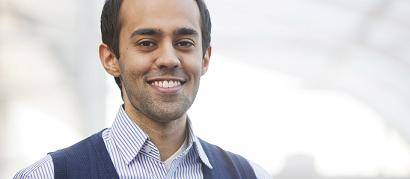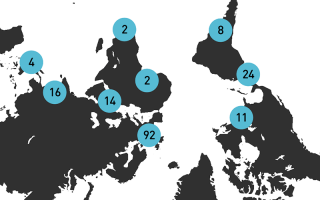Veyom recounts experiences of studying MSc Urban Development Planning at the Development Planning Unit

Program Officer - Robin Hood Foundation (New York, United States)
I came to the Development Planning Unit fearing my career had gone completely off course. As an undergraduate at the University of Pennsylvania I studied politics and urban poverty. I interned at the U.S. Agency for International Development and I researched HIV/AIDS prevention in Mexico City on a Fulbright Scholarship.
But my experiences had led to a seemingly contradictory intuition: promoting social justice in my career demanded I understand the world of finance. So, with a very deep breath, I became an investment banker.
My job was to structure municipal bonds for American city and state governments. I quickly discovered I did not have a passion for finance. But I stayed on Wall Street for two years because I felt I needed to understand the heart of capitalism, which, for better or worse, seemed to be the basis for how we design our cities and how we think about the people who live in them.
Thankfully, the Development Planning Unit confirmed my instincts. If ever the word “interdisciplinary” had a place, it was in the study of cities like New York – islands vulnerable to natural disaster that more than 8 million people call home.
Urban development is the work of an assembly, a web of individuals and institutions – from families to financiers, homeowners to housing developers, organizers to officials – each with his own interest and her own view on what makes for a good city.
But the DPU also challenged my approach. While my career was appropriately allowing me to amass perspectives from a multitude of industries – finance, public health, and public policy – I had managed to ignore the perspectives of the very people I intended to serve.
I learned intimately well at the DPU that, amidst constant shape-shifting, one of the few constants in a city is the knowledge held by the people who call that city home. The DPU taught me that you simply cannot know if your work will improve lives unless you ask the people you are trying to support.
Cities are wrought with daunting dispossession; effective urban development starts when we empower those who have been quieted. You can spend hours reading statistics on poverty in the South Bronx (and you really should if you think development is a challenge for the “global South” alone), or you can take the 6 train up from Manhattan and talk to a shopkeeper, a single mother or a dish washer. Chances are they will offer some of the best insight not just into the challenges of urban development, but into the solutions as well.
Since graduating from the DPU in 2011, I have helped design a social enterprise at the Young Foundation in London, interned at the White House Office of Social Innovation, and served on President Barack Obama’s 2012 re-election campaign. I now work as a grant maker at The Robin Hood Foundation, where I find and support programs that aim to measurably reduce poverty in New York City.
I care about what works, I care about evidence and I care about metrics. But most importantly, I care about what people tell me of their experiences. From the DPU, I learned that the practice of urban development requires not only intellectual curiosity, but also listening, advocacy and action. And with the convictions of a DPU graduate, I have returned to the city where I forayed into investment banking to, hopefully, finance the ingenuity of communities tackling with great tenacity their most pressing challenges.
 Close
Close


